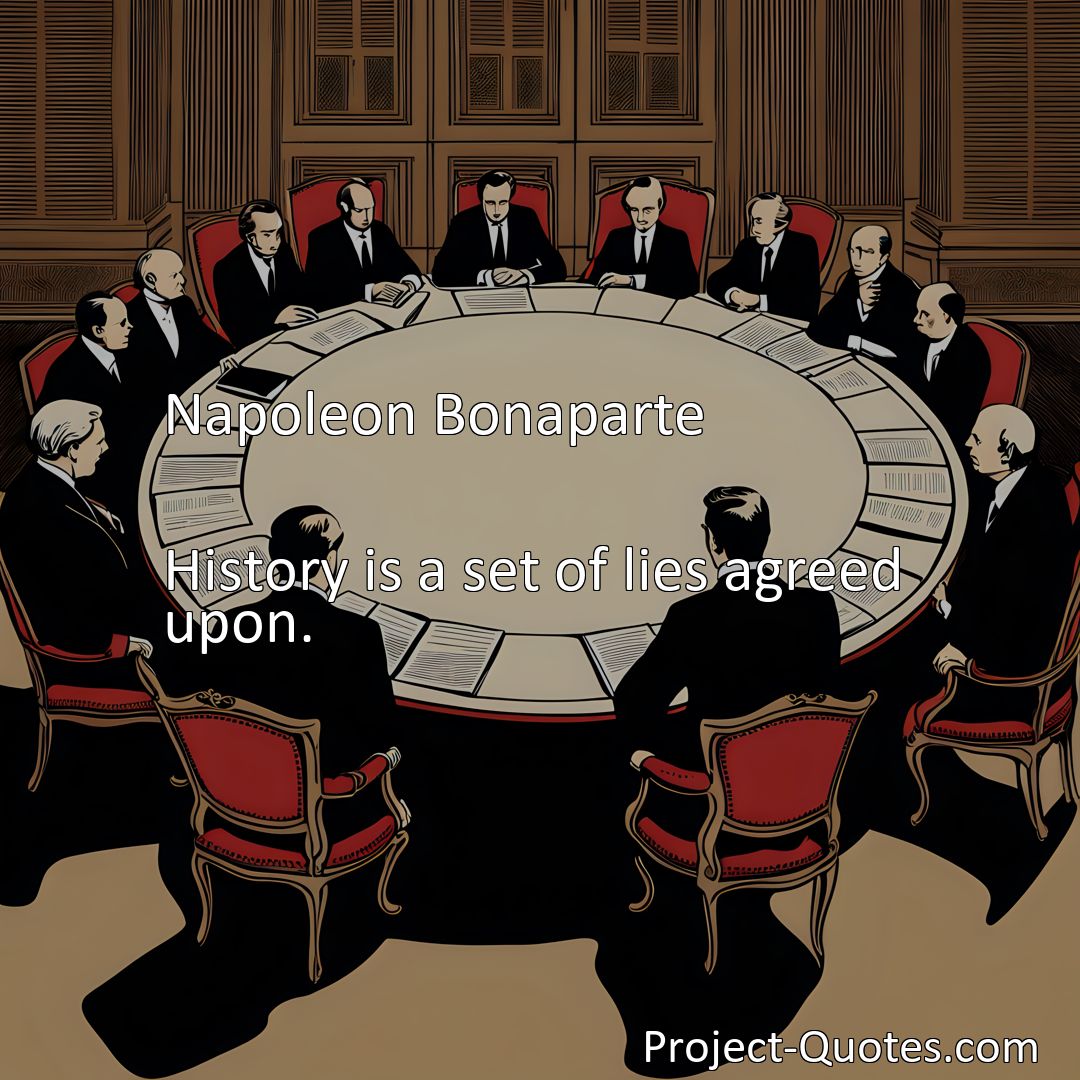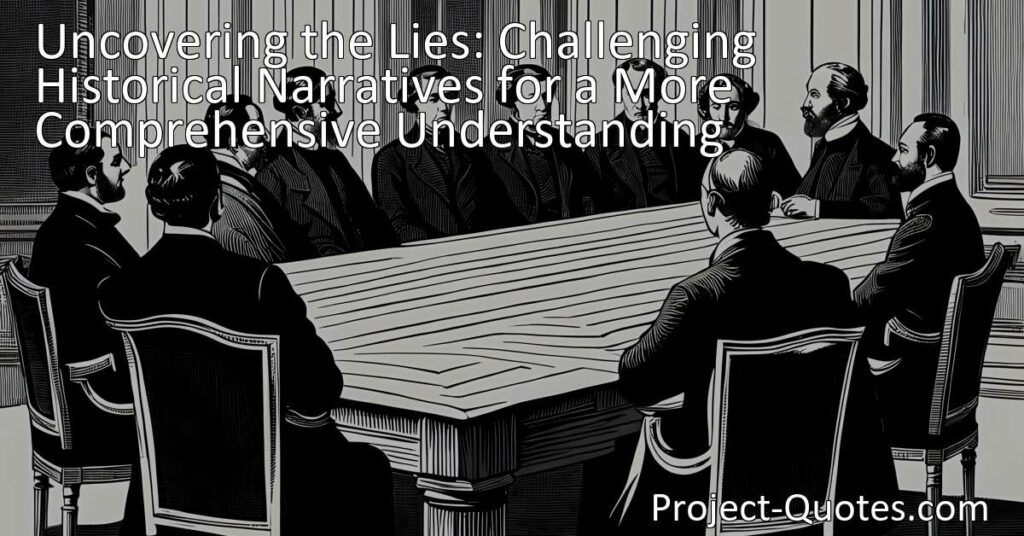History is a set of lies agreed upon.
Napoleon Bonaparte
Uncovering the Lies: Challenging Historical Narratives for a More Comprehensive Understanding. History can be full of distortions and biases, leading to inaccurate accounts of the past. By critically examining historical narratives and considering diverse perspectives, we can challenge the status quo and strive for a more accurate and inclusive understanding of our collective history.
Table of Contents
Meaning of Quote – History is a set of lies agreed upon.
History is often seen as a collection of stories that recount past events, guiding us on the path of understanding where we came from and how our world has formed over time. But have you ever stopped to think that these historical accounts might not be entirely accurate? In fact, there is a famous quote by Napoleon Bonaparte that claims, “History is a set of lies agreed upon.” While most people may find this statement shocking, it actually holds some truth behind its provocative words.
First and foremost, it is important to acknowledge that history is not an exact science. Unlike subjects such as math or physics, where facts can be precisely determined, history relies on interpretation and analysis of various sources, each with their own biases. We often rely on written records, such as diaries, official documents, and literary works, to reconstruct the events of the past. However, these sources can be influenced by personal opinions, cultural backgrounds, and political agendas, leading to potential distortions and discrepancies.
Imagine a game of telephone, where a message is passed from person to person. As the message travels, it can become modified, misinterpreted, or even completely altered. Similarly, historical accounts are susceptible to alteration as they pass through time. Different narrators may emphasize certain aspects while neglecting others, shaping the collective memory of events to suit their own perspectives or those in power. Consequently, what is accepted as historical truth may actually be a skewed version of reality, shaped by those who have the ability to manipulate it.
Moreover, history is written by the victors. In many cases, the dominant ruling class or those in power have the means to control and shape the narrative of the past. They have the authority to decide which stories are included in history textbooks and which are omitted, thereby exerting their influence in perpetuating particular narratives. For example, when exploring the history of colonialism, the perspective of the colonized is often silenced, while the voice of the colonizers is amplified. This leads to a biased representation of events, obscuring the true nature of past injustices and inequalities.
Another aspect to consider is the concept of collective memory. As societies evolve, they construct a collective memory that determines how events are remembered and passed down through generations. This shared memory becomes ingrained within the cultural fabric, shaping identities and influencing social behavior. However, collective memory is not fixed, and it can be manipulated and reconstructed to serve certain agendas. History becomes a tool for building nationalistic narratives or justifying particular actions, rather than an objective record of the past.
Nevertheless, despite the inherent flaws and biases within historical accounts, it is essential to recognize the value of history in shaping our present and future. History allows us to learn from past mistakes and achievements, providing a basis for progress and development. By critically examining the narratives presented to us, we can strive to uncover hidden truths and alternative perspectives, enabling a more comprehensive understanding of our shared human experience.
To navigate through the web of historical lies, one must develop a critical mindset. It is crucial not to take everything at face value, but rather delve deeper into the context, motivations, and sources of information. By seeking out diverse viewpoints and questioning dominant narratives, we can begin to grasp a more nuanced understanding of the past.
Furthermore, it is necessary to consider multiple sources and perspectives when studying history. By analyzing a variety of accounts, we can identify patterns, inconsistencies, and biases, enabling a more accurate representation of events. Collaborative research and cross-referencing different sources allow us to piece together a more comprehensive and reliable picture of the past.
Ultimately, Napoleon’s quote serves as a reminder that history is not a static entity but rather a dynamic and contested field of study. It is the responsibility of each individual to critically engage with historical narratives and challenge the status quo. By doing so, we can uncover the lies that have been agreed upon and strive towards a more accurate and inclusive understanding of our collective history. History should not be dismissed as merely a set of lies, but rather as an ongoing process of discovery, where the truth can be uncovered with patience, open-mindedness, and rigorous examination.
I hope this quote inspired image brings you hope and peace. Share it with someone who needs it today!


